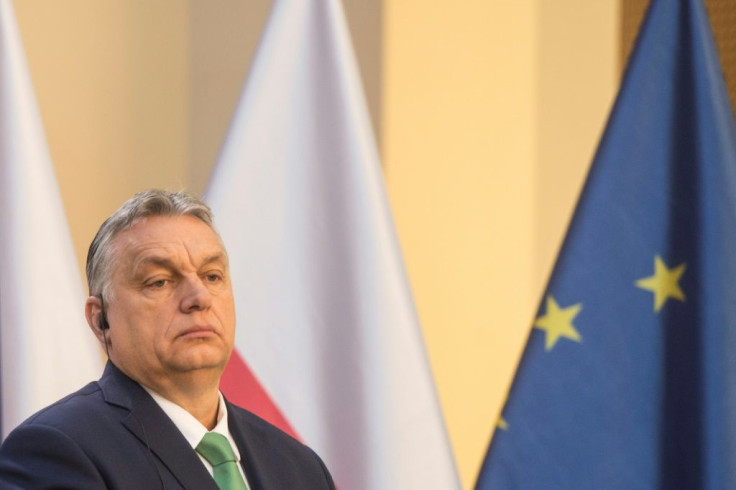Hungarian Banks Seek Merger To Form Country’s Second Biggest Lender

KEY POINTS
- The holding company, called Magyar Bankholding, will be 50%-owned by MTB and MKB each.
- MKB is 48.6%-owned by Lorinc Meszaros, an associate of Orban
- The combined bank will have 1.3 million customers, 840 branches
Two Hungarian banks, MKB and Magyar Takarekszovetkezeti Bank (or MTB), have entered into merger talks to form the nation’s second largest bank.
Under the current proposal, the two banks will form a joint financial holding company, called Magyar Bankholding, which will be 50%-owned by MTB and MKB each.
The task of the holding company will be to “examine and prepare the framework for the establishment of a new, domestically owned banking group with significant market weight by involving international consultants, exploiting the synergies between the banks and the significant operational and cost optimization potential of their cooperation.”
Magyar Bankholding will be headed by MTB’s current Chairman and CEO Jozsef Vida, while MKB Chief Executive Adam Balog, a former central banker and state secretary under Prime Minister Viktor Orban, will sit on the board of directors.
MKB is 48.6%-owned by Lorinc Meszaros, an associate of Orban.
The combined bank will have 1.3 million customers, 840 branches, and a balance sheet of 4.3 trillion forints ($13.1 billion), a loan portfolio of 2.6 trillion forints ($7.9 billion) and a deposit portfolio of 3.1 trillion forints ($9.4 billion).
Hungary’s largest bank, OTP Bank, had total assets of 14.6 trillion forints ($44 billion) at the end of 2018.
The new bank will also compete with Erste Group Bank and Raiffeisen of Austria; Belgium’s KBC and Italian bank groups UniCredit and Intesa SanPaolo.
“With the merger of the two banking groups, the second largest universal commercial bank in the Hungarian banking sector can be created, but in what form we are now examining,” Vida said. “ In the coming months, we will need to decide how our clients will benefit the most.”
The transaction would likely involve either a partial or full merger of the two banks.
MTB and MKB will submit an application to form the new holding company to the country’s central bank, National Bank of Hungary, later in May.
MKB focuses mostly on corporate and private banking in the urban areas, while MTB focuses on rural areas and has a large network of branches.
The governor of the Hungarian central bank, Gyorgy Matolcsy (another Orban ally) has long complained that Hungary has too many banks and urged lenders to consolidate and increase efficiency.
MKB and MTB said a merger would allow them to cut operating costs and downsize the branch network.
“I have repeatedly said in the past few years that Hungary’s interests and the strengthening of the banking system would be best served by increased Hungarian ownership and fewer banks,” MKB’s Balog said.
Since Orban took power in 2010 he has sought to reduce foreign ownership in Hungarian companies in certain key sectors, including energy, telecommunications and finance.
MTB and MKB said as they are each domestically owned, they can bring “significant benefits” to the Hungarian economy as a whole.
“Hungarian ownership in the banking system can be further strengthened, and the new, economically dominant, market-leading, universal banking group can operate successfully even in more difficult market conditions, thus providing stability and predictable liquidity for the Hungarian economy,” the banks added. “Cooperation between the two banks could generate additional [gross domestic product] growth.”
© Copyright IBTimes 2025. All rights reserved.





















